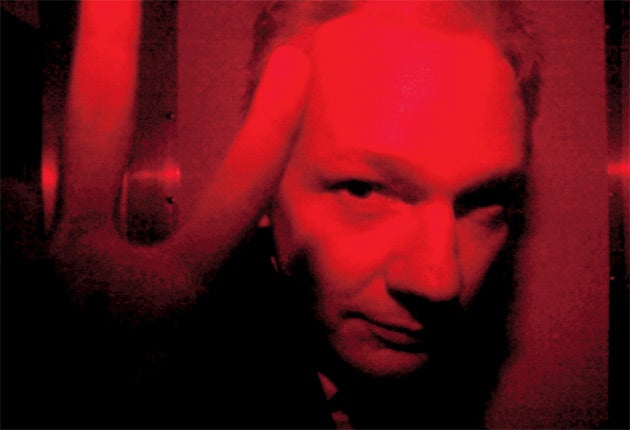The Year in Review: WikiLeaks
The ringmaster caught in his own web of intrigue

Perhaps it should be dubbed the Year of the Leak. What began as a steady trickle at the start of the year multiplied into a data tsunami as WikiLeaks caused convulsions around the globe with a series of stunning exposes that culminated in the publishing of a quarter of a million secret State Department communiqués.
For four years the whistle-blowing platform, founded by the mercurial former hacker turned transparency campaigner Julian Assange, had quietly published leaks ranging from the profound (corruption in Kenya) to the sheer mundane (the contents of Sarah Palin's Yahoo email).
But in 2010 WikiLeaks became a genuine global phenomenon as Mr Assange's organisation released a series of damning exposes on America – courtesy of a single disgruntled army intelligence analyst who was allegedly able to download a treasure trove of secret information on the world's most powerful nation and smuggle it out on a Lady Gaga CD.
The Year of the Leak began in April with "Collateral Murder", a harrowing cockpit video of a US Apache helicopter gunning down a group of armed and unarmed men in Baghdad, including two Reuters journalists. With cold precision the men were obliterated in a whirlwind of white hot steel. When a van of civilians – which contained two children – came to ferry the victims to hospital it too was fired on. The video was a key disclosure because it debunked the US Army's official record of what happened that day. But it also put WikiLeaks squarely in the sites of the American government who vowed vengeance on the leakers, arresting the alleged source and making Mr Assange public enemy number one on Capital Hill.
Unbowed WikiLeaks pressed ahead with its next disclosure, the publishing of 75,000 battlefield reports from the US military in Afghanistan. Washington decried the release saying it put soldiers and civilians in danger; journalists and historians poured over the reports with glee, even if they only really confirmed much of what we already knew – that the war in Afghanistan against the Taliban and Islamist militants is not going well.
Human rights groups had a little more trouble with the reports. They praised some of the revelations revealed in the war logs but condemned WikiLeaks and its media partners for not redacting the names of civilians working with Nato forces in Afghanistan.
But WikiLeaks had arrived on the global stage. Three months later a further 400,000 war logs from Iraq were published in what was described as "the largest leak of classified documents in its history". Hawks on Capitol Hill were apoplectic and the first mutterings were made of arresting or assassinating Julian Assange. But all previous leaks paled in comparison to WikiLeaks' piece de resistance, the publishing of 240,000 secret cables from US embassies across the world.
The people we elect – or in many areas of the world have forced upon us – were revealed to lie, backstab, bitch, moan, spy, double-deal and cry foul in the icky theatre of global diplomacy
But as WikiLeaks toasted its own success, the organisation risked unravelling. Shortly before the Iraq war logs a host of former volunteers, including its main spokesman, walked out after falling out with Mr Assange. They have since set up a rival whistle-blowing site.
Flush with fame and global notoriety, the behaviour of WikiLeaks' 39-year-old founder also caused headaches. Encounters with two women in Sweden have led to an ongoing sexual assault and rape investigation resulting in the WikiLeaks founder facing months of extradition battles. Mr Assange denies any allegations of impropriety and says the Swedish prosecution is part of a smear campaign to discredit an organisation that has taken on the world's most powerful elites.
US prosecutors, meanwhile, are busily creating a grand jury to try and bring their own prosecution against the Australian.
If 2010 was the Year of the Leak, 2011 will almost certainly become the Year of Mammoth Legal Tussles to keep the world's most successful whistle-blowing site in the game. It'll be a good year to be a lawyer.
Join our commenting forum
Join thought-provoking conversations, follow other Independent readers and see their replies
0Comments